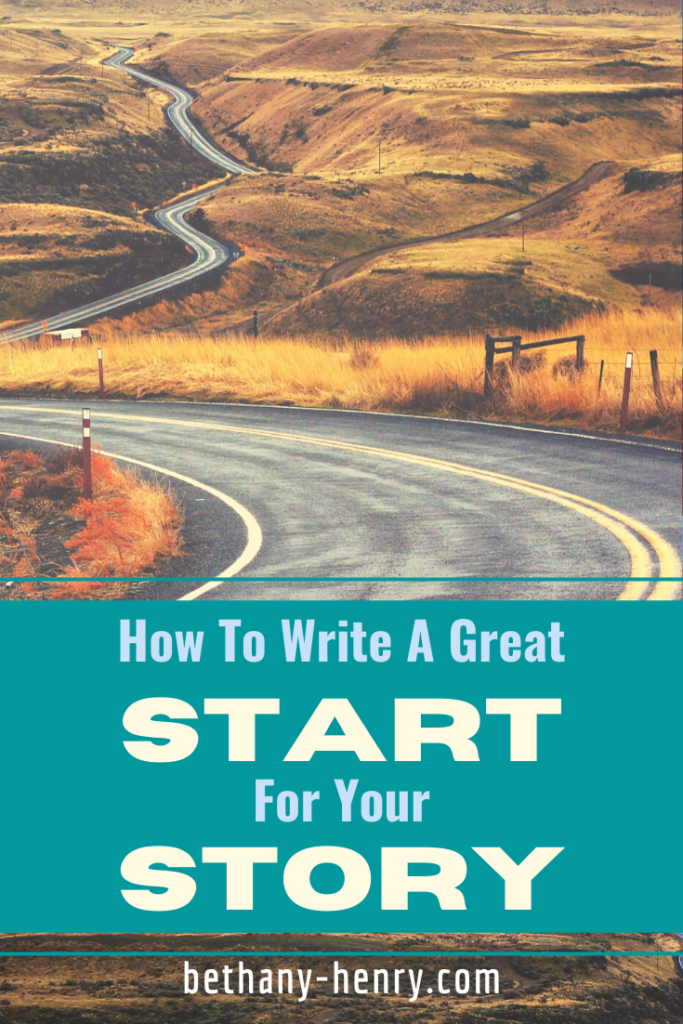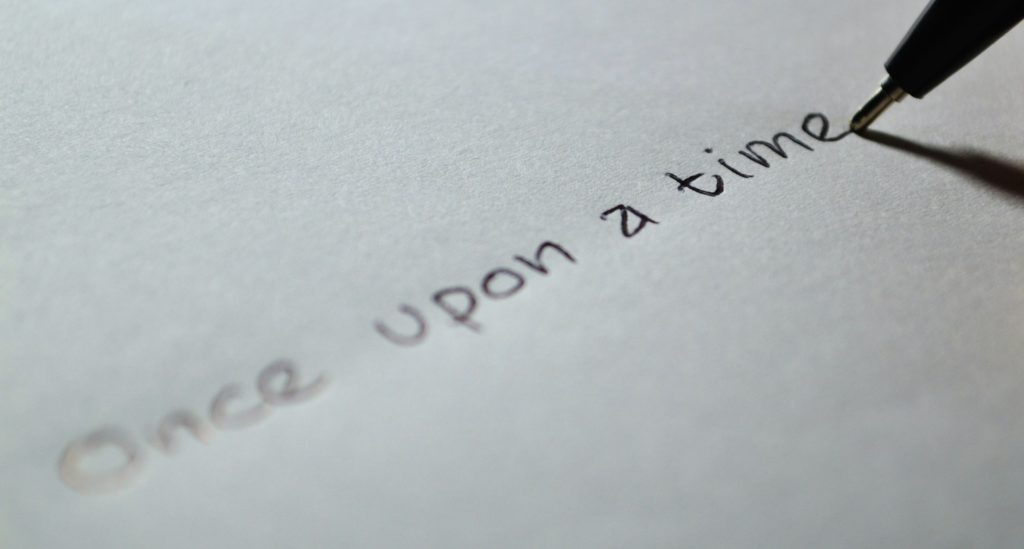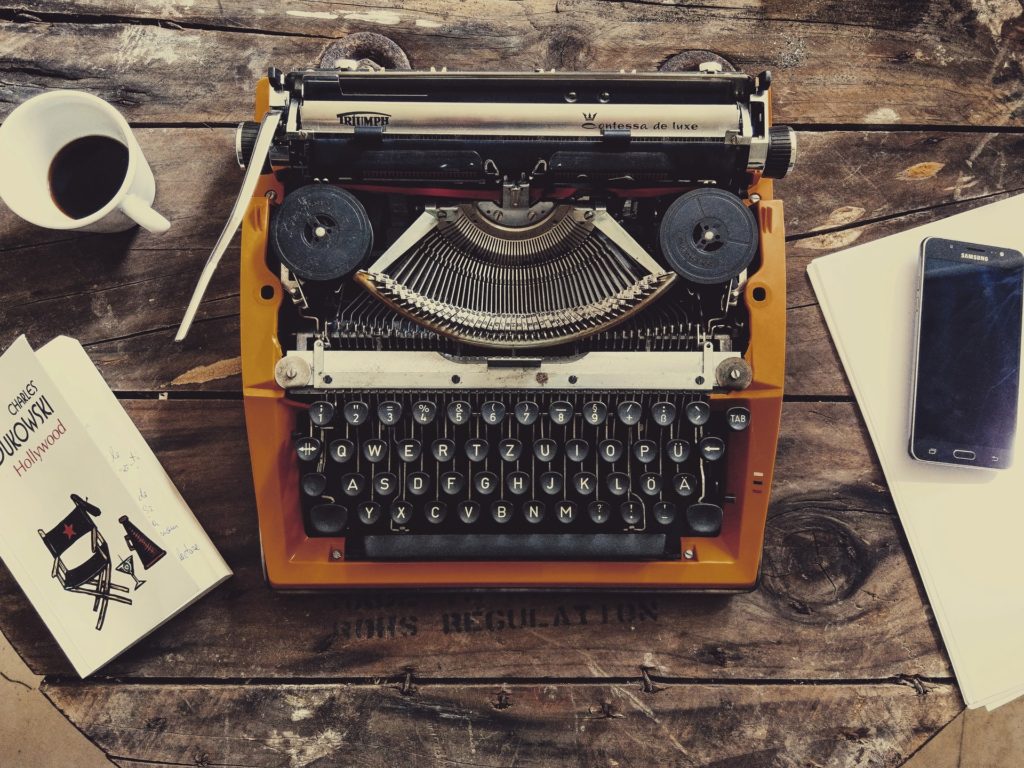Often a reader decides whether or not to read a book based on the first page- sometimes based on just the first paragraph or even just the first few words.

While we don’t want to paralyze ourselves with pressure over having a PERFECT first sentence to the point that we neglect the rest of our manuscript … we also want to recognize that it is kind of important to get the beginning of our story as close to perfect as possible.
So how do we write a great start for our story?
There are a few elements we want to make sure are included in our story’s beginning- as well as a few red flags to avoid.
All of writing is subjective of course and what works for some may not work for others, but hopefully this will get us thinking and help us create strong beginnings to our stories.
How To Write A Great Start For Your Story
Remember: It May Take Time.
The first lines we draft aren’t cemented in stone- we can try several different beginnings to see what works. Often won’t get a clear idea of how we want to start until we’ve finished the rest of the story, so don’t stress getting it right immediately.
A good story start may take a decent amount of work for the few lines it comprises- but it will be worth it.

What To Include:
Interest Grabber
This is the number 1 goal!! We need to catch the reader’s interest.
Frequent ways to catch a reader’s interest are to show something surprising, raise a question, or to introduce an immediate goal.
Basically we need to present a reason for the reader to keep reading.
Introduce the Protagonist
Our main character is the heart of the story so they should be the first thing the readers see. Show what makes them tick. Help the reader relate to them in some way.
If we can get the reader to care about our protagonist then they’ll want to find out what happens next.
Sense of Setting
A good sense of setting needs to exist to pull the reader into the story. They don’t already know the story like we do- so until we tell them otherwise, everything is happening in a blank space.
The best way to achieve this is to show a few specific details that can ground the reader in the story’s world. More details can be filled in later.
Introduce Goals, Stakes, and/or Problems
If there isn’t a problem, there isn’t a story.
Even if our story’s main goal doesn’t get introduced until later, we can still start our story with a mini-goal. It can be as simple as our hero wanting to get to work on time.
An immediate goal shows what our character cares about, it shows their personality under pressure, and it gives the reader a reason to stick around to find out if they succeed.
Story Tone
Is our book funny? A murder mystery? A romance? A reader should have a good feel for the story’s tone and genre within the first few sentences.

How NOT To Start:
These are not all intrinsically bad (aka: it is theoretically possible we could have a good reason to start with one of these things) … but chances are, there is a stronger way to start our story.
With a Dream
Other cliche story openings to be avoided are: the protagonist staring in a mirror, the protagonist waking up, or describing the weather.
Infodumps
The start of our story needs to be lean and mean. There will be a chance to share all the details of our worldbuilding and our character’s dark past later, but for now we need to just share what is needed in the moment. Too much too soon will overwhelm and bore the reader.
Too Much Thinking
We may care about our characters and their inner musings, but our readers don’t yet.
Too Many Characters
It’s hard for a reader to keep track of too many new people at once and we don’t want to overwhelm them or have our protagonist lost in the shuffel.
Too Much Action Without Context
Having a story jump right into a crazy action scene can make for an exciting start.. but if a reader isn’t given any context, why should they care who wins the fight?
A Non-Main Character
The first character readers are introduced to gains a certain importance in their minds. Don’t waste that (or confuse the readers!) by failing to introduce the protagonist right away.
Prologues…
They aren’t ALL bad, but lots of readers skip them so we have our work cut out for us.

For further reading on how to craft a great start to your story:
How to Write a Great Beginning Hook – Story Grid
How to Start a Story: 11 Tips From Our Editors – Reedsy
10 Ways to Start Your Story Better – Writer’s Digest
How Not to Start Your Novel: 6 First Page No-Nos – Anne R. Allen
For further reading (and I cannot recommend this book highly enough) check out Hooked by Les Edgerton.

This is an affiliate link, which means I’ll be compensated if you make a purchase. If that bothers you, just search for the book on google.
Best of luck with your writing! And if you read a good story start or excellent first line, feel free to share it below 🙂





Hi there, I enjoy reading through your article. I like to write a
little comment to support you.
Thanks, Lolita! 🙂